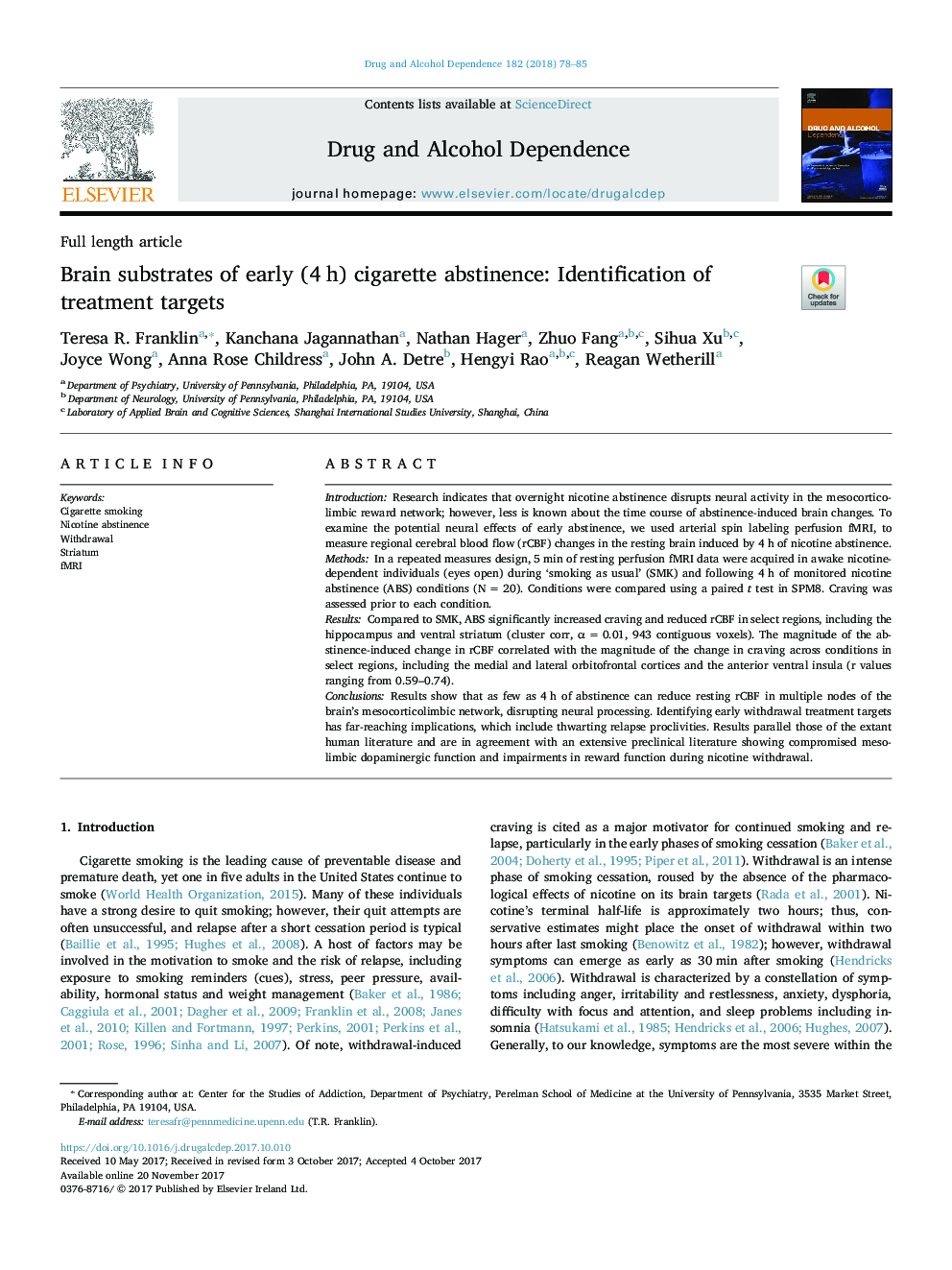| Article ID | Journal | Published Year | Pages | File Type |
|---|---|---|---|---|
| 7503432 | Drug and Alcohol Dependence | 2018 | 8 Pages |
Abstract
Results show that as few as 4Â h of abstinence can reduce resting rCBF in multiple nodes of the brain's mesocorticolimbic network, disrupting neural processing. Identifying early withdrawal treatment targets has far-reaching implications, which include thwarting relapse proclivities. Results parallel those of the extant human literature and are in agreement with an extensive preclinical literature showing compromised mesolimbic dopaminergic function and impairments in reward function during nicotine withdrawal.
Related Topics
Life Sciences
Neuroscience
Behavioral Neuroscience
Authors
Teresa R. Franklin, Kanchana Jagannathan, Nathan Hager, Zhuo Fang, Sihua Xu, Joyce Wong, Anna Rose Childress, John A. Detre, Hengyi Rao, Reagan Wetherill,
